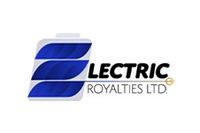Glencore to Boost DRC Cobalt Production as Katanga Ramps Up
Katanga will add 11,600 tonnes of cobalt and 150,000 tonnes of copper to major miner Glencore’s total production this year.
Mining giant Glencore (LSE:GLEN) is set to increase its cobalt output in the Democratic Republic of Congo (DRC) as its Katanga mine ramps up, the company said on Thursday (February 1).
The mine, which has been on care and maintenance since 2015, will add 11,600 tonnes of cobalt and 150,000 tonnes of copper to Glencore’s total production in 2018.
As a result, the Swiss diversified miner could see its cobalt output climb to 39,000 tonnes this year, up substantially from 27,400 tonnes in 2017.
Katanga’s restart has been widely expected by analysts and investors, and Glencore estimates that the operation could produce as much as 20,000 tonnes of cobalt a year by 2019.
Despite this increase in production, the cobalt market could hit a deficit by 2022/2023, according to analysts. That’s because the need for the metal is expected to increase as demand for electric cars surges. Cobalt is a key component in the lithium-ion batteries used to power these vehicles.
In fact, Benchmark Mineral Intelligence says that as demand for electric vehicle batteries rises, cobalt supply will need to reach 180,000 tonnes by 2026.
Glencore has said Katanga has the potential to become Africa’s largest copper producer and the world’s largest cobalt producer. The DRC is the top cobalt-producing country, accounting for more than 50 percent of world output, but it is politically unstable and mining has been linked to conflict and child labor.
Most recently, Congress in the DRC passed a revised mining law that is set to increase taxes on cobalt and other metals. The new legislation could negatively impact miners in the country, although it has yet to be signed off on by President Joseph Kabila.
“If legislation is finalized as reported, DRC miners’ profits will take a hit and could lead to (even) higher [cobalt] prices,” Benchmark Mineral Intelligence analyst Caspar Rawles said. LME cobalt prices have jumped more than 140 percent since January last year.
Speaking about how miners may react to the news, Tyler Broda, an analyst at RBC Capital Markets, said he expects Glencore and other DRC-focused companies to defend their rights, although he expects there to be a hit to sentiment. “Glencore is just completing its Katanga expansion which makes this a challenging time for a tax change,” said Broda.
In a December statement, several of the DRC’s largest mines, including projects operated by Glencore and London-listed Randgold Resources (LSE:RRS), said investors will look elsewhere if the code is approved by the Senate and signed into law by the president.
“One can expect unprecedented lobbying efforts from the sector to change the president’s mind before he signs the revised mining code into law,” said Elisabeth Caesens of Resource Matters, a Brussels-based non-government organization.
On Thursday, Glencore closed down 0.98 percent in London at GBX 399.80. The company’s share price has increased 2.44 percent year-to-date.
Don’t forget to follow us @INN_Resource for real-time news updates!
Securities Disclosure: I, Priscila Barrera, hold no direct investment interest in any company mentioned in this article.

